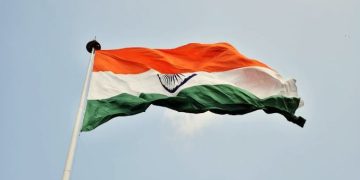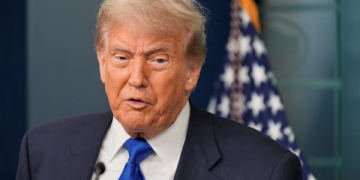TRUTH TO TELL BY NIRMALYA DEB
Political power grows from the ownership of the means and requisites of production and the wherewithal to set the productive process in motion, thereby channelizing labour, resources, and technique, which is but the product of accumulated social labour, to create a product higher in social value than that required in production. Therefore, the right way to use it to secure permanent peace and amity in social relations is to seek its legitimacy from where it originates — i.e. from the necessity to control and organize the means and methods of production
We humans are part of social and political formations and organizations of inter-connected chains of power and authority, and therefore it is never really possible for us, as spectators of the political process, to view it with a kind of detachment characteristic of the attitude of the scientist studying the digestive system of a frog, for instance. This is a truth that needs to be very astutely appreciated for anybody trying to understand the aims and methods of the political scientist. The craft of the political scientist lies in identifying and distinguishing elements from memory and experience to furnish a body of logically coherent concepts related to the significance of politics in life, while the art of the political thinker lies in assessing that significance and its importance in the human scheme of things, its viability given human wants and expectations.
But man, and especially the thinking man – the Platonic-Bergsonian version of the contemporary philosopher-man, no longer “king” mark it, thanks at least to formal democracy in the way it has brought about changes in our manners and courtesy by ridding, again thankfully, our behaviour of its feudal remnants – is capable of a great deal of
detachment which is evident in the very poised and authoritative voice that political philosophy takes from the very start with Aristotle’s Politics. His dissection of the forms of existing governments, if not his views as to which is better for overall good, is akin to a biologist’s dissection of the materials of his study. That Aristotle is primarily a biologist is very evident in the Politics and the biological view of the organism, and the state as an organism, gained much popularity in political theory in the Middle and Early Modern ages in Europe. In the modern age Bergsonian creative evolutionism gained intellectual recognition in Europe in the early decades of the 20th century. Bernard Shaw’s Back to Methuselah is pure Bergsonism with its Ancients roaming the world for 1,000 years – embodiments of thought without body, a form of immaterialism.
This capability for intellectual detachment enables man to observe the political process impartially while being an integral part of it. That is why the aims and methods of political science are strictly laid out – utopian ideals like justice, equality, etc. are not explained in terms of ultimate ideas but empirically as they have been sought to be implemented in different countries and in different contexts, like constitutional justice in modern Europe and norms of international humanitarian intervention agreed to by nations affected by World War II. At first sight what appears to be the political process is a form of social bonding, social interaction and grouping on the basis of shared interests and ideals. Slowly it grows into a strong centralized monolith with a diverse base and a wide fragmentation of interests. Control and ownership of the means and requisites of production obviously determine the power relations within an organization and a figure around whom others rally generally emerges as the leader leading a pack with one unified set of demands that can be dealt with by the state alone.
Manifestations of group rule, the form of rule symbolized in a huge rally, perhaps, reveal the intricate dynamics of power in society. We can’t afford to lose sight of the fact that political theory has, in addition to understanding the sources of power vested in different forms in political society, the additional task of understanding the very legitimacy of wielding power in organizing social relations of production, i.e. social relations as a whole not in abstraction from the way of life of society. Due to the fact that political formations in modern-day societies are related to a mélange of factors, understanding issues of identity-formation on the basis of class and economic interests, interests related to language and preservation of a particular communitarian tradition, interests related to sex and its different political manifestations in advanced capitalist democracies, etc. are questions intricately related to polarization of social and existential interests in a social formation. Parties are pressure groups in a democracy representing particular interests and fighting for different visions of organizing society’s productive capacity, and thereby with different visions of rehashing the entire structure of socio-economic relations.
But manifestations of political power and the direct experience of being a spectator in the process and yet trying to attain a kind of detachment that would enable us to unearth the objective laws of political society is very interesting. Suppose a club election is on, and the stronger candidate decides to show a little muscle by putting up a tent within 100 metres of the polling booth in defiance of the Election Commission guideline, thereby inviting opposition ire and forcing the media and the paparazzi to rush to the spot on a hot election day. He has a bunch of goons who would do all the shouting, a gang of sweltering boxers (better still, bull dogs!) who’d do everything in their capacity to show political muscle, or power of the candidate. This is the kind of expression of power, entrenched on the firm basis of political grouping and the strength of majority that we encounter from small locality-specific controversies related to sharing of land and resources right up to conflicts related to claiming possession of tracts of contentious landmasses between warring nations. Political power grows from the ownership of the means and requisites of production and the wherewithal to set the productive process in motion, thereby channelizing labour, resources, and technique, which is but the product of accumulated social labour, to create a product higher in social value than that required in production. Therefore, the right way to use it to secure permanent peace and amity in social relations is to seek its legitimacy from where it originates – i.e. from the necessity to control and organize the means and methods of production.
Like the biological view of the state as an organism there has been a subsequent intellectual development of the idea of the state as a machine, a direct offshoot of scientific rationalism of the Enlightenment that reveals a mechanistic picture of the universe governed by strict physical laws. This sets up the deux ex machina worldview devoid of god and, therefore, of much of the substance of traditional Cartesian rationalism. Notice, we have discussing the theories of the state and its historical transformations and forms in relation to the legitimate power that, we believe, the state should wield in the light of governing civil society and channelizing human interests. We have still not set up a clutch of rules with which to judge the right or correct (in the normative sense, because, as we have already noted, we can’t wholly separate political theorizing from human wants and expectations – moral and otherwise) ways of using power for overall social good, but noted, largely correctly, that power originates from control of productive capacities and is used in arranging and re-arranging (producing and reproducing in the Marxist sense) the means and methods of production. Therefore, questions related to its legitimacy and proper use (again in the normative sense in which we delineated the function of political theory as an ‘art’) must be viewed in the light of human production, needs, and interests.
But the forms of expressions of political power that we witness in everyday life undoubtedly provide much of the stuff of political theory. And in this respect we can draw a direct parallel between literature and life. Consider the infamous speech of Mark Antony in Shakespeare’s Julius Caesar where after Caesar’s murder (the “… Brutus is an honourable man” speech) he tightens the screws hard on Brutus, Cassius, and the Republican party by ingeniously swinging public opinion in favour of him and Octavio, the future Augustus Caesar. He swings power by some great rhetoric and Julius Caesar is a great play because it depicts not only the inner relationship of rhetoric and politics in ancient Rome, which was also a Renaissance and, by historical deduction, a lingering Elizabethan literary preoccupation, but the inner workings of a polity – the sources of conflicts, and destruction. In public life we hear speeches extolling certain aspects of an ideology – could be a religious ideology clothed in the garb of modern economics, or an economic ideology inciting secret religious passions – such speeches we get to hear pretty often, and it doesn’t take a great deal of imagining to deduce that the speakers have a firm understanding of the weak spots of the audience, and have a distinct idea as to how to win them over to his position.
Practical understanding of the workings of power, therefore, is essential to frame a coherent position of its role in shaping political society and its different manifestations in public life, which by the very virtue of the fact that we participate in it and a play a role in moulding it, becomes an integral feature of our existence and comprehension.






































